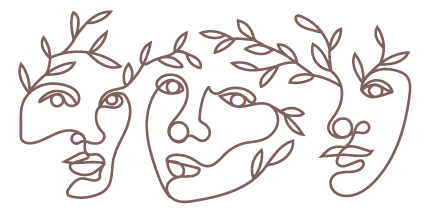Prometheus
"Prometheus" is a short fiction piece that falls under the abstract horror genre. It offers a modern and unsettling retelling of the original Promethean myth, in which eagles eat Prometheus' liver every day. In this short story, the events are narrated through the eyes of a child who watches his father die of liver cancer, while the ominous arrival of the eagles looms over them. The piece invites reflection on human mortality and the detrimental effects of dwelling on the inevitability of death.
A Case for Stories
Writer Shereen Rana explores the role of stories and fiction in not only her life but society at large. Through a lyric essay, she delves into the urge and need to contextualize and re-contextualize our feelings, circumstances, and the world around us. Join her as she questions the impact of storytelling and shares her personal journey in understanding its importance.
White Walls—At What Cost?
The color white has long symbolized peace and purity, but is it becoming a detriment to our daily lives?
Writer Shereen Rana investigates the impact of the color white on our psyche. From the lack of creativity in institutional settings to the minimalist trend in homes, discover how colors can boost our wellness and productivity.
Death and Despair in the Dark Ages: A review of Ottessa Moshfegh’s “Lapvona”
Brenna Hagan shares her review of the novel "Lapvona" by Ottessa Moshfegh. She summarizes the plot and the themes of the book, which is set in a medieval fiefdom and follows the life of Marek, a disfigured shepherd boy, and the other characters in the village of Lapvona. The novel is characterized by its brutality, and readers of Moshfegh's previous works should not be taken aback by the grotesque elements in "Lapvona.”
Everyone In This Room Wishes They Were Dead: Emily Austin Captures the Dysthymia of a Queer Generation
Emily Austin’s debut novel “Everyone In This Room Will Someday Be Dead" is about a lesbian struggling with mental illness who winds up getting a job at a Catholic church. Emily Van Ryn gives their review of Austin's book and discusses the book’s themes of mental health, trauma, and queerness.





